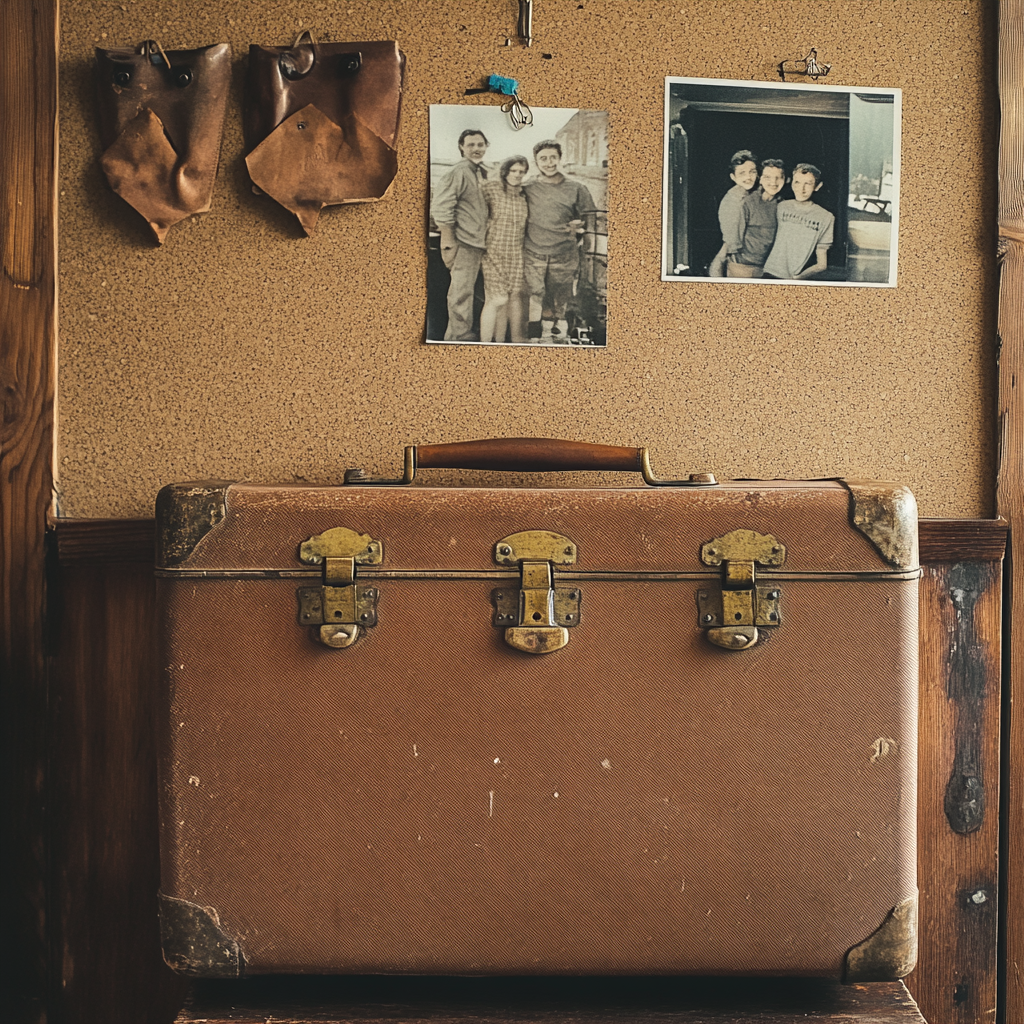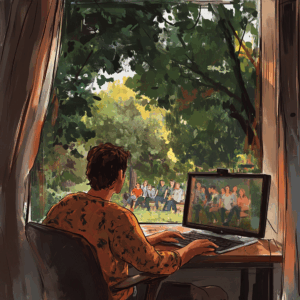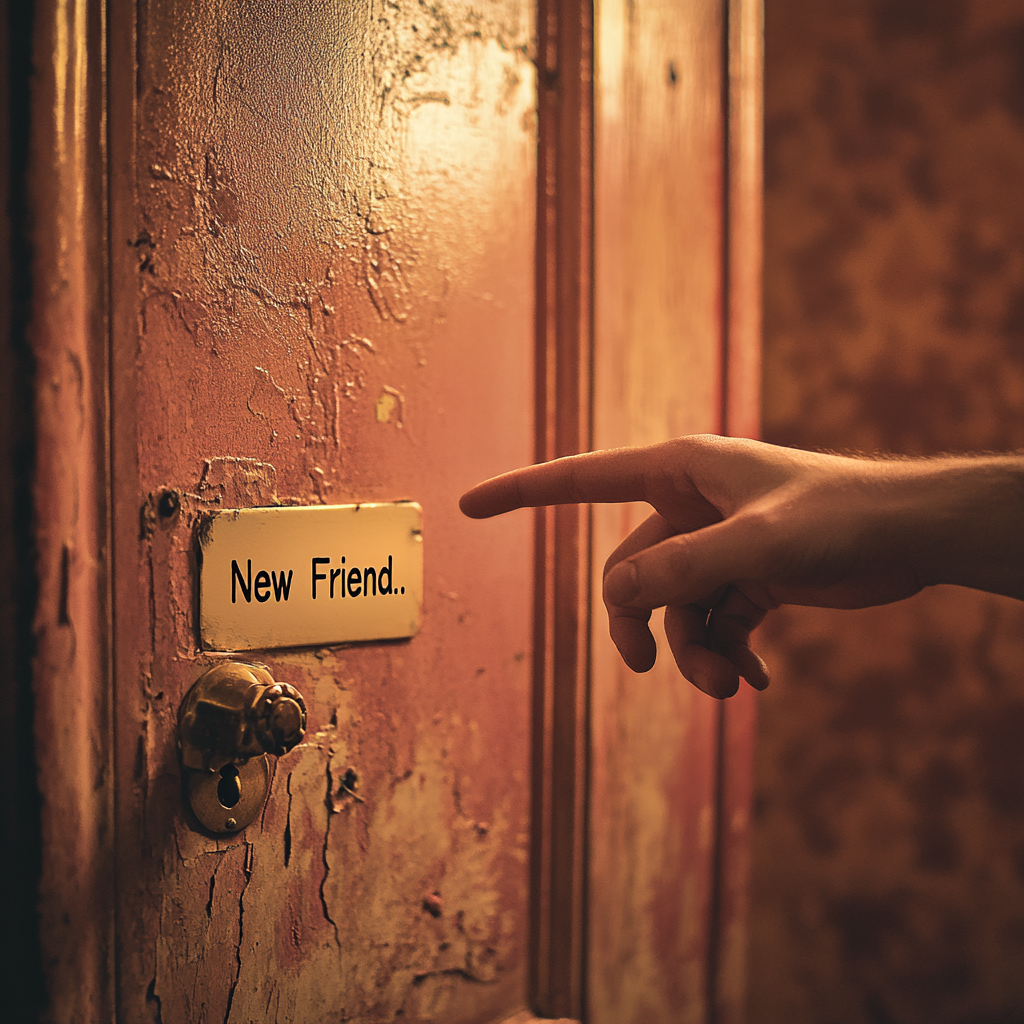Adult Friendships Are Hard: Tips for Building Connections
Why are adult friendships so hard: Key Highlights
-
Building adult friendships requires intentional effort and vulnerability but can lead to fulfilling relationships.
-
Life transitions like marriage, career changes, and having kids often impact friendships.
-
Challenges like busy schedules, social anxiety, and remote work hinder opportunities to connect.
-
Forming new relationships is possible through shared interests, such as joining clubs or attending local library events.
-
Simple acts like maintaining communication, setting boundaries, or exploring common hobbies enrich meaningful adult friendships.
-
Fading friendships shouldn’t breed guilt; instead, focus on cultivating connections that bring mutual joy and intimacy.

Why Adult Friendships Feel Like Climbing a Social Mountain
Gone are the days of effortlessly bonding over recess or lunch trays. In adulthood, forging meaningful friendships often feels like an uphill battle—one cluttered with packed schedules, family obligations, and the emotional weight of simply trying to keep up. It’s no wonder so many people are left wondering, why are adult friendships so hard? The spontaneity of childhood is replaced with the logistics of calendars and careful coordination. Yet beneath the struggle lies a profound truth: the deeper the effort, the richer the connection. Building friendships as an adult may take more intention, but the emotional rewards are deeper, more soulful, and often more enduring than anything formed on the playground.

Why Are Adult Friendships So Hard?
The question echoes in coffee shops, therapy sessions, and late-night scrolls: why are adult friendships so hard? Between overloaded calendars, emotional fatigue, and shifting priorities, it’s no wonder maintaining adult relationships can feel impossible. We’re navigating responsibilities that our younger selves never imagined—and friendship, sadly, often gets demoted.
Life Transitions That Break or Bend Friendships
Graduations, weddings, babies, cross-country moves—each of these milestones, while beautiful in their own right, can quietly reshape the landscape of our closest relationships.
What once felt effortless—like daily texts, spontaneous hangouts, or late-night phone calls—gradually morphs into occasional check-ins or once-a-year birthday wishes.
It’s rarely out of malice or neglect; more often, it’s the sheer complexity of adult life taking the front seat. And this is exactly why adult friendships are so hard. Every major life shift pulls at our time, our energy, and our emotional bandwidth, making it increasingly difficult to maintain the same level of intimacy we once did.
Navigating these transitions with intention is key—acknowledging the change without assigning blame, and finding new rhythms that honor where both people are in life.

Career Overload: The Relationship Killer
Your boss doesn’t care that you haven’t seen your best friend in three months. Work emails at 9 p.m., relentless meetings, and burnout don’t leave much room for wine nights. The hustle culture quietly erodes time for joy and friendship.
Check out the American Institute of Stress – Work & Relationships to learn more about the correlation between work and friendships.
Marriage, Parenthood, and Priorities
Building a family is beautiful—but it often creates emotional distance from friends who aren’t on the same path. Invitations decline, conversations shift, and shared experiences shrink.
The Loneliness of Remote Work
Remote work offers flexibility, sure—but it also breeds isolation. The casual watercooler conversations, spontaneous coffee runs, and shared birthday cupcakes? Gone.
In their place is a quiet, often invisible loneliness that creeps in between video calls and Slack messages. Without daily in-person interactions, our chances to form organic connections shrink dramatically.
For many, this subtle social drift becomes one more reason why adult friendships are so hard. We’re more “connected” than ever, yet emotionally more distant—navigating a digital world that rarely replaces the real-life bonds we crave.

The Vulnerability Dilemma: Fear of Rejection
You’re not imagining it—it’s scary putting yourself out there. Vulnerability is the key to intimacy, yet many adults build walls instead of bridges, afraid of appearing needy or awkward.
Check out this book by Brené Brown on Vulnerability.

Why Moving Away Can Feel Like Emotional Ghosting
Even the most heartfelt “Let’s keep in touch” text can fade into oblivion after a move. Time zones, new routines, and different vibes often signal the slow fade of once-tight bonds.

Social Anxiety in Adulthood: It’s Real
Even extroverts feel it—the overthinking, the self-doubt, the endless replay of something said during a casual chat. Every interaction feels like navigating a sea of internal monologues, where confidence is constantly second-guessed. It’s moments like these that make us pause and wonder: why are adult friendships so hard? The emotional labor of connection doesn’t disappear with age—it just gets quieter, more complex, and often more intimidating.
Why Friendships Feel Awkward Without a Shared Goal
In school, sports teams or group projects gave us a built-in excuse to bond—connection came effortlessly through shared purpose. But in adulthood, those shared goals are far less common. Without a mutual mission or structured setting, interactions can feel awkward or forced, often leaving friendships drifting in shallow waters. It’s no wonder people begin to ask themselves, why are adult friendships so hard? The absence of natural bonding opportunities means we have to create them from scratch—and that takes more vulnerability, effort, and intentionality than many expect.
The Social Media Mirage: Connection vs. Closeness
A “like” isn’t a hug. A comment isn’t a conversation. Social media tricks us into believing we’re connecting when, really, we’re just observing.

Why Group Chats Don’t Replace Real Conversations
Sure, you’re technically “in touch.” But when was the last time you had a deep one-on-one talk? Group chats can dilute emotional closeness, turning friendships into nothing more than meme exchanges.
How to Make Friends as an Adult (Without It Being Weird)
Join a local class. Strike up conversation at your yoga studio. Say “yes” to the neighborhood potluck. You’re not alone in wanting more connection—and chances are, others are just as nervous as you.
Check out Meetup.com – Find Your People

Micro-Interactions That Make a Macro Difference
Small actions matter: smiling at the barista, complimenting a colleague, texting someone “just because.” Friendship starts in the margins before it moves into the center of your life.
Using Hobbies and Interests as a Gateway
Shared passions pave the way for effortless bonding. From a Dungeons & Dragons night to a local book club, hobbies break down awkwardness and build familiarity.
Check out : Eventbrite Local Events


How to Nurture Friendships Through Busy Schedules
Put friend dates on your calendar like doctor’s appointments. Send voice notes during your commute. Time doesn’t magically appear—you make room.
Long-Distance Friendships: Keeping the Spark Alive
Movie nights over Zoom. Surprise snail mail. Voice memos. Scheduled FaceTime brunches. Long-distance friendships can flourish with creative effort.

When to Let Go of a Friendship Guilt-Free
If a friendship becomes one-sided, toxic, or draining, it’s okay to move on. Mourn it. Learn from it. Make space for healthier connections.
How Friendships Improve Mental Health
Friendships reduce stress, buffer anxiety, and literally lengthen your lifespan. Your circle isn’t just social—it’s survival.
Check out: Mayo Clinic on Social Connections
Why Quality > Quantity in Adult Friendships
You don’t need a squad—you need soul connections. One good friend can outweigh a dozen shallow acquaintances. Go deep, not wide.
Download Our Friendship Builder PDF
Need a jumpstart? Our free PDF download offers 30 friendship icebreakers, weekly check-in templates, and ideas for group gatherings.

Frequently Asked Questions
Yes. Quality matters more than quantity. Many adults have only one or two close friendships.
Start simple. Send a warm message or a memory. A low-pressure “thinking of you” text works wonders.
Absolutely. Join interest-based forums, online classes, or group chats centered around your passions.
Rejection stings but isn’t always personal. Keep trying with others—it’s a numbers game.
Lean into small gatherings or structured settings like classes or book clubs. Start with shared interests.
Consistency. Communicate. Show up—whether through texts, calls, or quality time.
Yes, if it no longer adds value or brings you joy. Ending respectfully is an act of self-care.
Because adult life offers fewer organic opportunities to meet new people. You’re not broken—just busy.

